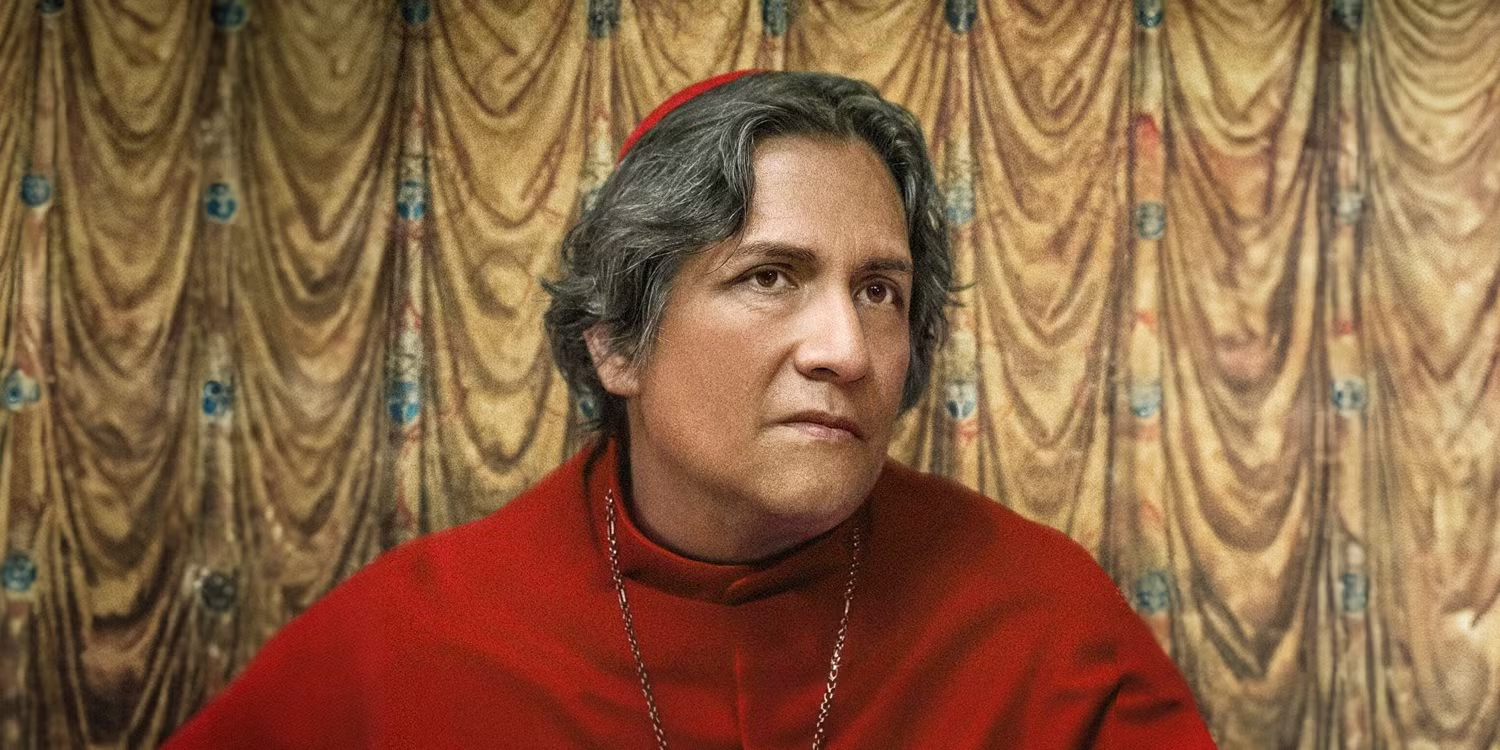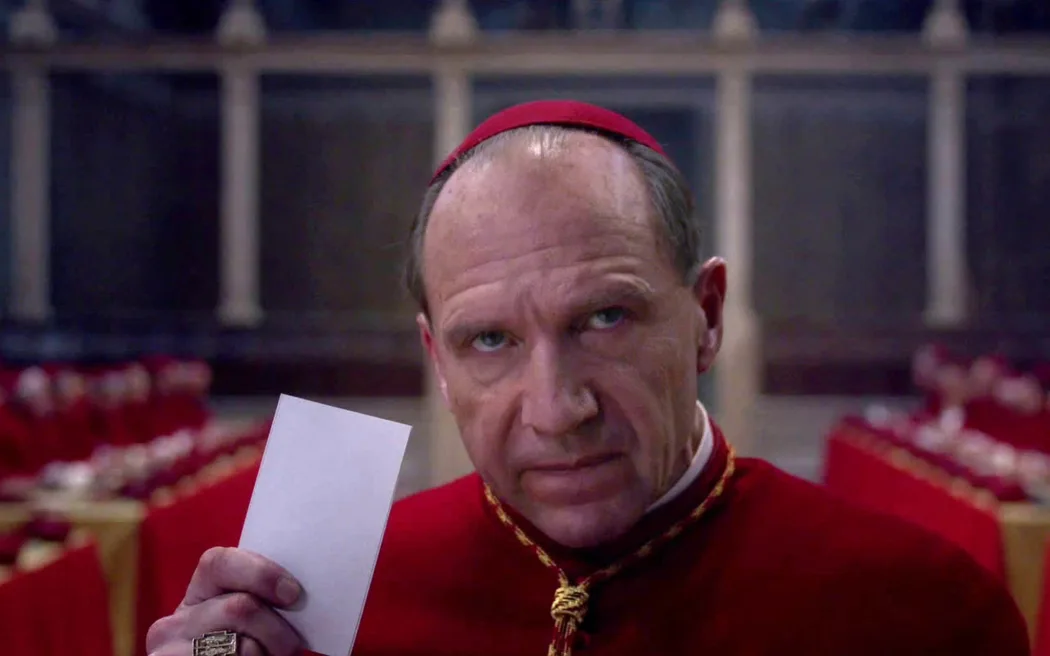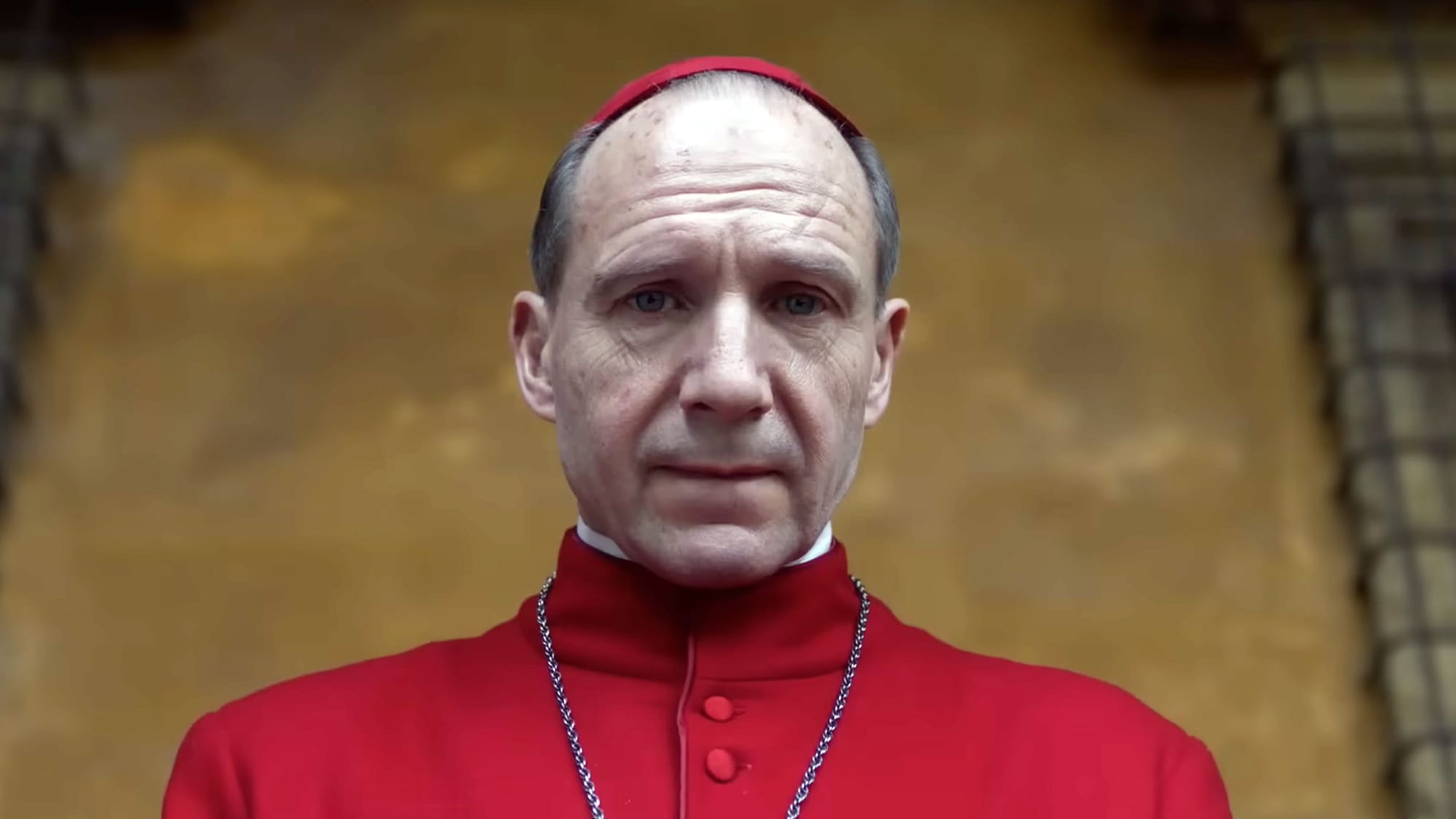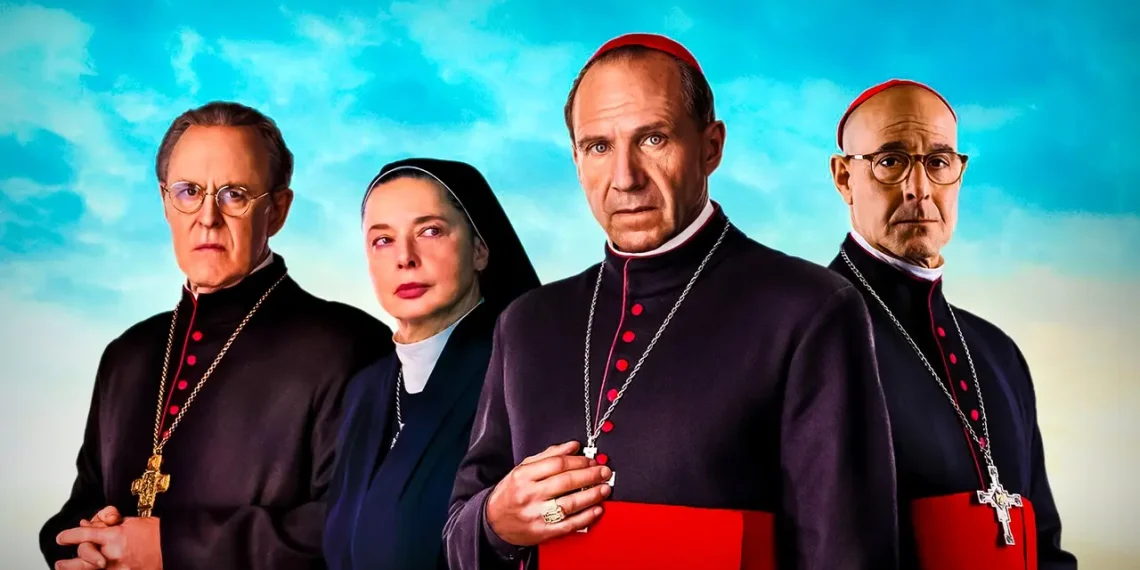Conclave leaves audiences with a thought-provoking ending, sparking debates about faith, identity, and institutional change. Directed by Edward Berger and adapted by Peter Straughan from Robert Harris’s novel, the political thriller takes viewers through the intense process of selecting a new pope. With critical acclaim and awards buzz, Conclave successfully blends suspense with philosophical questions about morality and tradition.
The film follows Cardinal Thomas Lawrence, who, despite initial disinterest, finds himself a strong contender for the papacy. However, it is Cardinal Vincent Benitez who is ultimately chosen, a surprising outcome given the secret he carries. Before the announcement is made to the public, Lawrence visits Benitez and discovers something astonishing—Benitez nearly underwent a hysterectomy. The revelation leaves Lawrence stunned, yet he chooses to remain silent. The final white smoke rises, signaling that a new pope has been elected.
Conclave Ending Explained

Benitez’s backstory serves as the film’s most unexpected twist. The new pope is intersex, a fact that remained unknown to even himself until adulthood. Raised as a male and sent to seminary early on, Benitez lived under the assumption that he was biologically male. However, a life-altering moment in Afghanistan changed everything. After surviving a car bombing, a routine medical examination revealed he had a uterus.
Believing this disqualified him from his position, Benitez attempted to resign. Instead, the previous pope, aware of the situation, arranged for Benitez to have a hysterectomy. But Benitez ultimately chose not to go through with it, believing that he should remain as God made him. Apart from the late pope and a doctor, no one knew of Benitez’s condition. As he assumes his new role, the question remains—will he reveal his secret to the Catholic Church and the world?
Why Benitez Chose The Name “Innocent”
Upon being elected, Benitez selects the name “Innocent,” a title with deep historical significance. The first Pope Innocent held the Holy See in 401, known for strengthening papal authority. Given the corruption exposed throughout the film, this choice reflects Benitez’s desire to bring integrity to the role.
Director Edward Berger elaborates on the name’s meaning, describing it as a representation of purity and openness. He likens it to the innocence of children—untainted by societal conditioning, free from prejudice. Benitez’s character embodies this concept, standing apart from the more politically driven cardinals. His faith remains unshaken, and his vision for the Church is one of genuine acceptance rather than power struggles.
Why Cardinal Lawrence Keeps Benitez’s Secret
Throughout Conclave, Cardinal Lawrence exposes the hidden agendas of his fellow cardinals, ensuring a just election. Despite this, he makes the conscious choice not to reveal Benitez’s truth. By the time he learns of it, Benitez has already been elected. Unlike the blackmail and unethical tactics used by others, Benitez’s intersex identity is not a scandal but a deeply personal truth.
Lawrence also sees Benitez’s faith as sincere. Outing him would not only betray that trust but serve no real purpose in changing the election’s outcome. While many of the other cardinals manipulated the process for personal gain, Benitez’s journey represents something different—an opportunity for meaningful change within the Church.
Director Berger offers insight into Lawrence’s mindset. He recognizes that the right person has been chosen, not because of political maneuvering, but because of true belief. This realization reshapes Lawrence’s understanding of faith and leadership. The Church, historically a rigid patriarchal institution, experiences a shift—a small but significant crack in its foundation, hinting at a future where tradition and progress can coexist.

The Symbolic Meaning Behind Conclave’s Final Shot
The film closes on a visually rich moment—Cardinal Lawrence opens a window, allowing sunlight and fresh air to flood the Sistine Chapel. This action serves as a powerful metaphor, signifying renewal and a shift toward a more open-minded future under Benitez’s leadership. The sound of three nuns laughing further underscores this theme.
Ralph Fiennes, who plays Cardinal Lawrence, interprets the turtles shown in the final scene as symbols of “spiritual independence.” Isabella Rossellini, who portrays Sister Agnes, adds that the moment highlights the contrast between the conclave’s claustrophobic atmosphere and the world beyond its walls. The opening of the window is not just literal—it represents a breaking of barriers, a new beginning for the Church.
Director Berger reinforces this idea, explaining that the laughter of the nuns symbolizes hope. The film’s final moments suggest a future where inclusivity and understanding replace secrecy and exclusion. Benitez’s election, though controversial, may usher in an era of greater acceptance within the Church.
The Real-World Possibility Of An Intersex Pope
The idea of an intersex pope raises intriguing questions about the Catholic Church’s stance on gender and sexuality. Papal expert David Gibson, Director of the Center on Religion and Culture at Fordham University, weighs in on this possibility.
According to Gibson, there is no theological barrier preventing an intersex individual from being elected pope. Just as history has seen gay men take the position, an intersex pope could theoretically lead the Church. However, the film doesn’t fully explore what this would mean in practice, leaving certain questions unanswered.
Gibson points out that Pope Francis has taken steps toward inclusivity. In 2023, he met with a group of trans and intersex Catholics, affirming their dignity and existence. This real-life moment resonates strongly with Conclave’s central themes, showing that the Church is already beginning to acknowledge gender diversity.

Cardinal Lawrence’s Changing Perspective On Becoming Pope
At the start of the Conclave, Cardinal Lawrence has little interest in becoming pope. His focus is on maintaining fairness during the election, exposing corruption, and ensuring that a deserving candidate is chosen. However, as the process unfolds, he begins to see himself as a potential leader.
Benitez consistently votes for Lawrence, recognizing something in him that even Lawrence himself struggles to see. His belief, along with Lawrence’s growing awareness of the Cardinals’ moral failings, leads to a shift in perspective.
The Late Pope’s Knowledge Of The Cardinals’ Secrets
Though the pope dies at the beginning of the film, it becomes evident that he is well aware of the political scheming within the conclave. He knew of Cardinal Tremblay’s bribery attempts and had even demanded his resignation before his death. Most notably, he knew about Benitez’s condition and secretly appointed him a cardinal.
The late pope’s choices reveal a depth of foresight. By appointing Benitez, he ensured that the Church had a leader who could bring about transformation, even if his decision would have been controversial.




